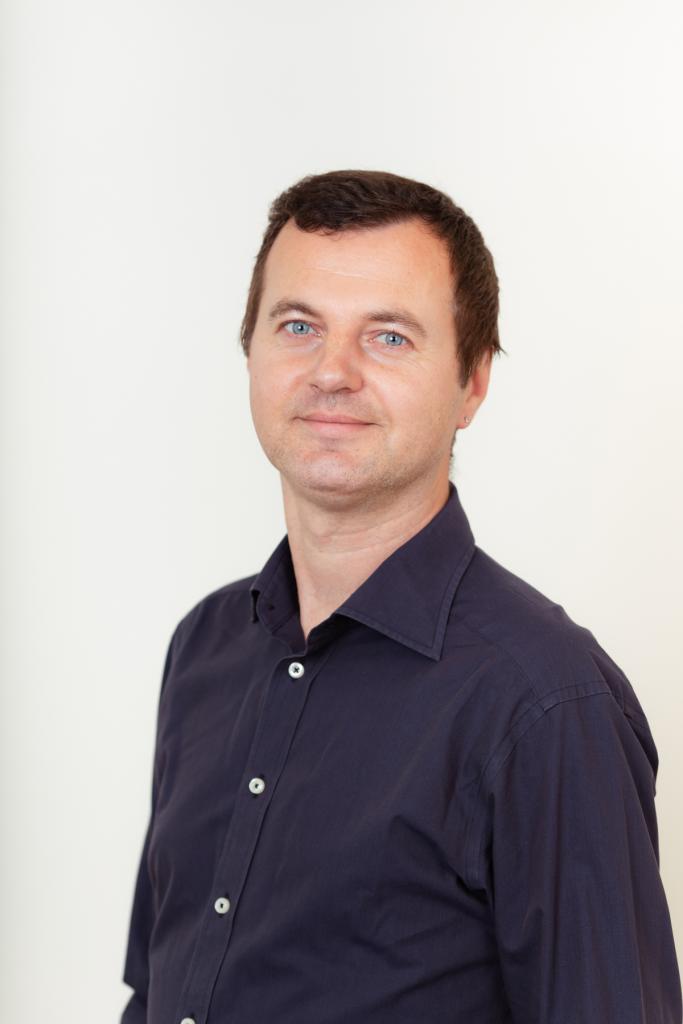The English for Research course consists of three classes and has been designed for doctoral students and anybody who would like to improve their knowledge and skills about English for research purposes.
Aim
To study topical issues of English for research purposes by linking theory to practice and focusing on research communication through assigned [optional] reading materials, and exercises.
Guntars Dreijers (pictured) holds a PhD and the position of Associate Professor in contrastive linguistics and translation studies. He has been actively cooperating with universities both nationally (Ventspils University of Applied sciences, RISEBA, University of Latvia), and internationally (Université Bretagne Sud in Lorient, France; TEI of Serres in Greece, Duzce and Bandirmas Universities in Turkey, University of Porto in Portugal). Promoting the academic exchange, Guntars Dreijers has delivered classes at the University of the West of England in the UK, and he participated in the academic exchange programmes at universities in Finland, Czech Republic, and the USA. His research interests include language aspects of translation and legal linguistics. He has been regularly invited as a plenary speaker for international conferences and has been involved as a scientific reviewer in a number of editorial boards. Guntars Dreijers is also participating in the national research programme 'Latvian Language', Erasmus+ programme 'Translating for Linguistic Diversity', and 'Teachers in the Distance'.

Course Outline
10 Jan
16:00–17:30
Topic
- Quality of Research Writing
- Editing and Proofreading
- To Translate or Not to Translate
- Delivering oral presentations and designing poster presentations
Practical Exercises
- Tools for Proofreading, Translating Research Texts
- Outline
Stages of the writing process involve editing and proofreading; besides, reviewers have their own expectations. We will look at some of the requirements and expectations for a qualitative final version, and tools for improving it. Additional issues will cover interference, tips for grammar, punctuation, and coherence. Aspects of delivering one’s research orally will also be emphasised.
Past classes
- 19 Dec
Topic
- Building Academic Vocabulary
- Terminology
- Academic Style
- Research Decisions and Knowledge Claims
- Content
- Literature Review
Practical Exercises
- Vocabulary, collocations, vocabulary, and terminology
- Hedging, discourse markers, transitions
- Outline
During the class, we will learn about terminology and language for specific purposes. In particular, the microstructural units (i.e., lexical units) of the research text that comply with terminology of the field and research requirements will be analysed. Practical exercises will look into academic vocabulary, collocations.
The class will also focus on formulating research questions, finding answers, planning a writing project, and weighing evidence. Decision-making and cooperating in a writing group will also be highlighted. Cohesive devices, a study problem, and a roadmap for creating a structured research paper will be discussed in addition to practical exercises.
- 28 Nov
Topic
- English for research as a language variety in science communication
- Planning, structuring a research article and thesis
- Managing one’s writing behaviour, writer’s block
- Becoming a productive academic writer
- Target audience
Practical Exercises
Grammar issues: from phrase to clause to sentence to paragraph to text
Outline
The class focuses on such issues as target audience, topic, and a formal research paper. The link between reader, purposeful scientific activity, skills for writing a research paper will be considered. We will also look at some common barriers to writing and possible ways of overcoming them. Motivation and thinking will be discussed in the context of overcoming the writer’s block.



